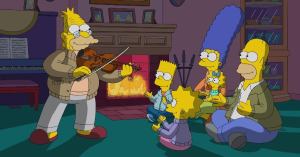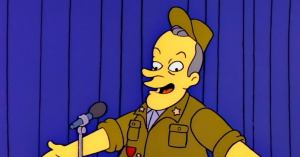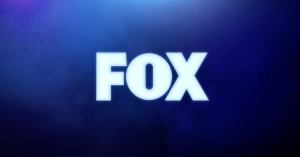A word that The Simpsons made up is now entering everyday language.
On Monday, Merriam-Webster added the word “embiggens” to its pages, TV Guide reports. Defined as to make bigger or more expansive,” and noted that its usage is “informal” and “humorous,” the word has been widely accepted in mainstream pop culture since its emergence on an episode of The Simpsons 22 years ago.
Videos by PopCulture.com
The word was coined in 1996 by The Simpsons writer Dan Greaney and first appeared in the Season 7 episode “Lisa the Iconoclast,” during which students from Springfield Elementary School learn the history of their town, including the town’s motto. In the short film Young Jebediah Springfield, which the students watch, town founder Jebediah Springfield announces that “A noble spirit embiggens the smallest man.”
The word headlined the addition of 850 new Merriam-Webster words which were announced Monday, including wordie (lover of words), glamping (outdoor camping with amenities and comforts not usually used when camping), and dumpster-fire (an utterly calamitous or mismanaged situation or occurrence).
“The language doesn’t take a vacation, and neither does the dictionary,” Merriam-Webster noted. “The words we use are constantly changing in big ways and small, and we’re here to record those changes. Each word has taken its own path in its own time to become part of our language — to be used frequently enough by some in order to be placed in a reference for all.”
Among the new additions are several words that were created on the internet include “mansplain,” when a man explains something to a woman in a condescending way, assuming she does not know about the topic. Additionally, Twitter users are familiar with “subtweeting,” and now so is the dictionary.
Other additions included words that are based on two words combined together, such as the dog breeds chiweenie and schnoodle, and interjections like “hmm,” “ooh,” “mm-hmm” and “welp.”





